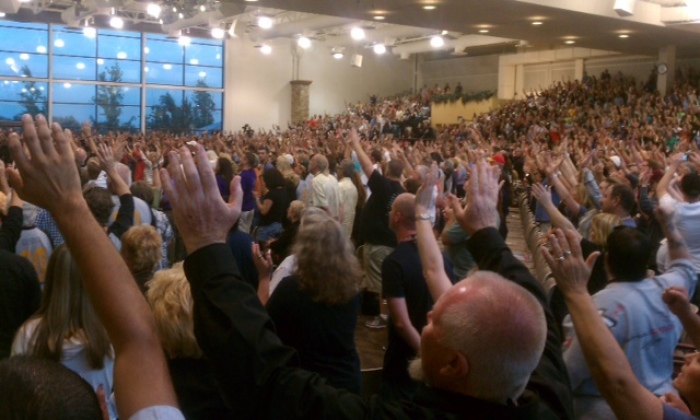Churches, Christian-Based Recovery Groups Playing Vital Role in Saving America's Working Class From Addiction

"Most people who call for help in finding a Christian treatment center are from a working class background, and have little or no means for treatment," Epp said.
He further emphasized that drug and alcohol addiction does not discriminate based on social class, and affects different social and economic circles.
"Those with more means have an easier time hiding the fact that they are flirting with addiction issues. Different drugs attract different demographics, where as a housewife would rarely be caught using crack cocaine, but the addiction rates of pharmaceuticals are higher among housewives than a street drug user," Epp added.
He agreed that there is room for improvement when it comes to how churches in America reach out to and offer help to working class people struggling with addiction problems, but also noted that a majority of large churches do indeed offer support groups, such as Saddleback Church´s Celebrate Recovery ministry.
"Pastors have a lot on their plate when dealing with addiction issues, which is why they have 12-step meetings and recovery programs that meet in the evenings," Epp noted.
As to the type of people who enter Christian rehab centers, Epp revealed that many of them have a foundation in Christian values and beliefs. He suggested that it would be counterproductive and do more harm than good to put someone with no Christian beliefs in a Christian treatment center.
"Sometimes it is better to handle the addiction so you can work with the real person to explore their faith after treatment," he explained.
Perea offered that at Revival, clients who sign up for the services often at least have a basic idea of Jesus Christ and the Gospel.
"At the time of admittance they usually are disconnected to their faith and Savior. Their choice of drug has now, by default, become their God. Seeds have been planted and our job is to water them," she said.
"To guide them to a place of restoration and equipping them to step into the power of God that every believer in Jesus Christ has access to. Ushering them into a lasting experience of freedom in the inner most part of their being. It's a gift and it's available," Perea continued.
The Revival executive director shared that there are also people who have had no experience with God, but decide to try a faith-based program because it offers something different to what they have previously tried but hasn't worked.

"In either case we realize that our time is usually a small window of opportunity to introduce them to a real God who changes things," Perea said. "We are His hands and feet but He is the Healer!"
Revival's 12-Step program is based on verses of scripture that have been specifically chosen and simplified to help people recover from addiction and find freedom.
"We use the Bible and 12- step program in conjunction with one another with Jesus Christ at the center. There is no other God. The truth of both conveys that we are powerless apart from the power of God. That's over addiction as well as any other struggle," Perea explained.
"In life we will release our control to something or someone, knowingly or unknowingly. Will it be God or Satan? The 12-step program is a process that reveals a person's moral condition. Causing you to look at humility, character, forgiveness, the power of prayer, confession and salvation. The Bible is the answer on what to do with the things that are exposed through the 12 steps," she added.
Perea stated that following up with clients after they complete the recovery program is also an important part of the ministry.
"Addiction is something that must be managed throughout a person's life. We have found a greater success rate with those who commit to a longer time in recovery. It takes time to teach and learn the tools to equip them to learn how to change behavior patterns, thought processes and new ways of responding to the stressors/triggers of life," she said.
"We emphasize building relationships at Revival, first with the Lord and then with each other. It's in that time of establishing relationships and being an extension of Gods love that clients often begin to find hope again and often realize it didn't take 30 days to get in this deep it may take more than 30 days to fully get the victory."




























